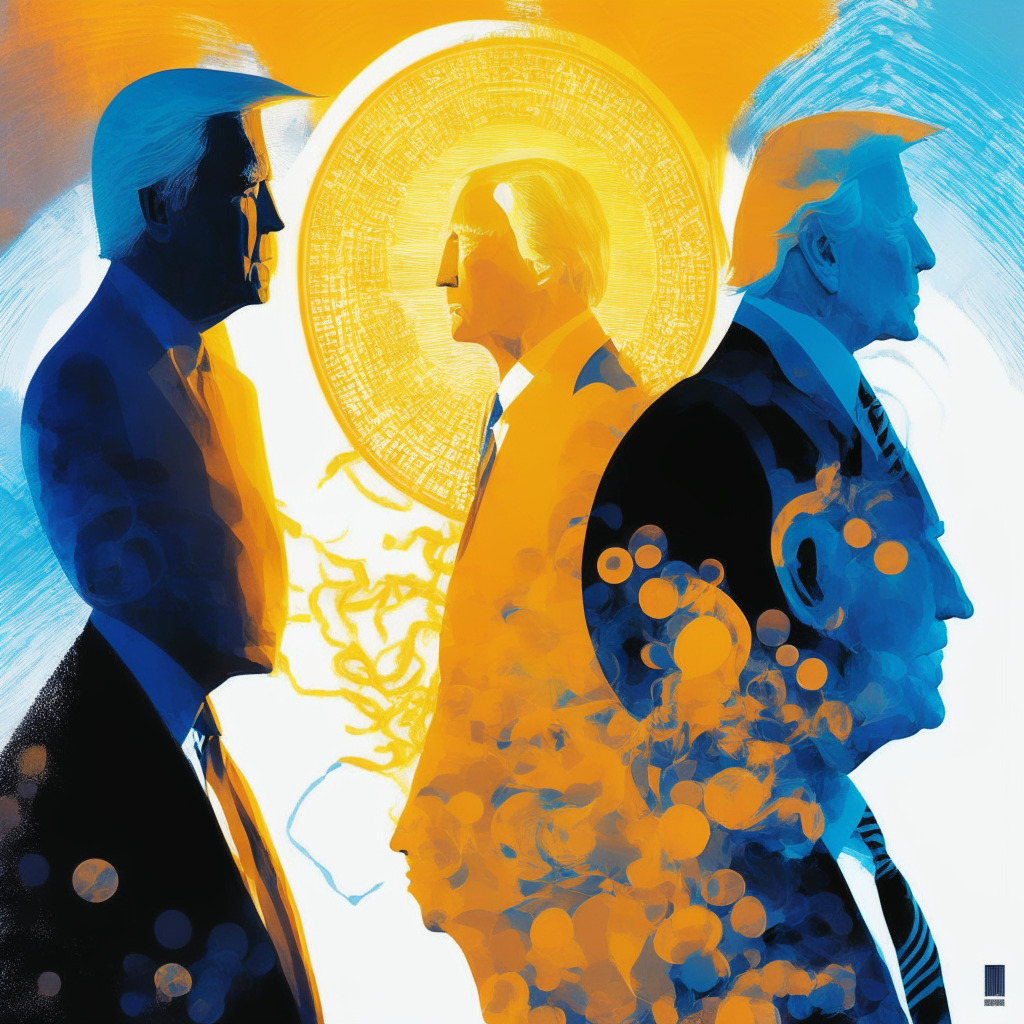An eye-catching shift is predicted to transpire in future U.S. presidency with a likely favouring attitude towards central bank digital currency (CBDC). Observations made by crypto asset management firm Grayscale signal that the front-runners from both major political parties might lend support towards the development of CBDCs, despite their ambigious stance towards Bitcoin. Joe Biden and Donald Trump, attracting notable support in the 2024 presidential polls among their respective party members, are foreseen to welcome an investigation into CBDCs.
This perspective ascends from past stances. Trump notoriously labelled Bitcoin as a “scam”, and Biden’s position was inferred from his support for a 30% tax on Bitcoin mining. Even though the rationale behind Trump’s position towards crypto and digital assets remains nebulous, he has previously shown favourable disposition towards nonfungible tokens.
Potential signs of Biden’s general support can be found in his “Executive Order on Ensuring Responsible Development of Digital Assets.” It should be mentioned that the 2023 Economic Report of the President had a less approving stance towards crypto.
In contrast, the second place candidates from Democratic and Republican parties, Robert Kennedy, Jr. and Ron DeSantis respectively, have publicly voiced their support for cryptocurrencies and opposition to CBDCs. Beyond the front-runners, the crowded field of Republican candidates is not bereft of pro-crypto supporters. Vivek Ramaswamy is encouraged by Grayscale for his pro-Bitcoin and anti-CBDC stance.
Interestingly, a major proponent of crypto, Republican Miami Mayor Francis Suarez is perhaps the most ardent supporter on either side, despite his presidential aspirations being viewed as “improbable.”
In other significant news, worries about regulatory uncertainty have sparked rumours of a potential country-shift for Coinbase. CEO Brian Armstrong stated that although the company is considering this, leaving the U.S. is not in the cards for now. They face legal pursuits from federal regulators and 10 state regulators, testing the resilience of crypto firms. The U.S. Securities and Exchange Commission’s ongoing case against Coinbase could very well set a precedent for future crypto firms’ operations in the United States.
If we view the political landscape as a mirror reflecting the future of cryptocurrencies, it appears to present a wide gamut of views, from ardent supporters to intense skeptics. As the fog of government regulation slowly dissipates, a clear path towards cryptocurrency integration in the financial infrastructure of the U.S. could be formed. But, without a firm governance stance, the journey towards that clear path seems to be a bit bumpy at the moment.
Source: Cointelegraph




